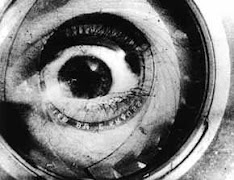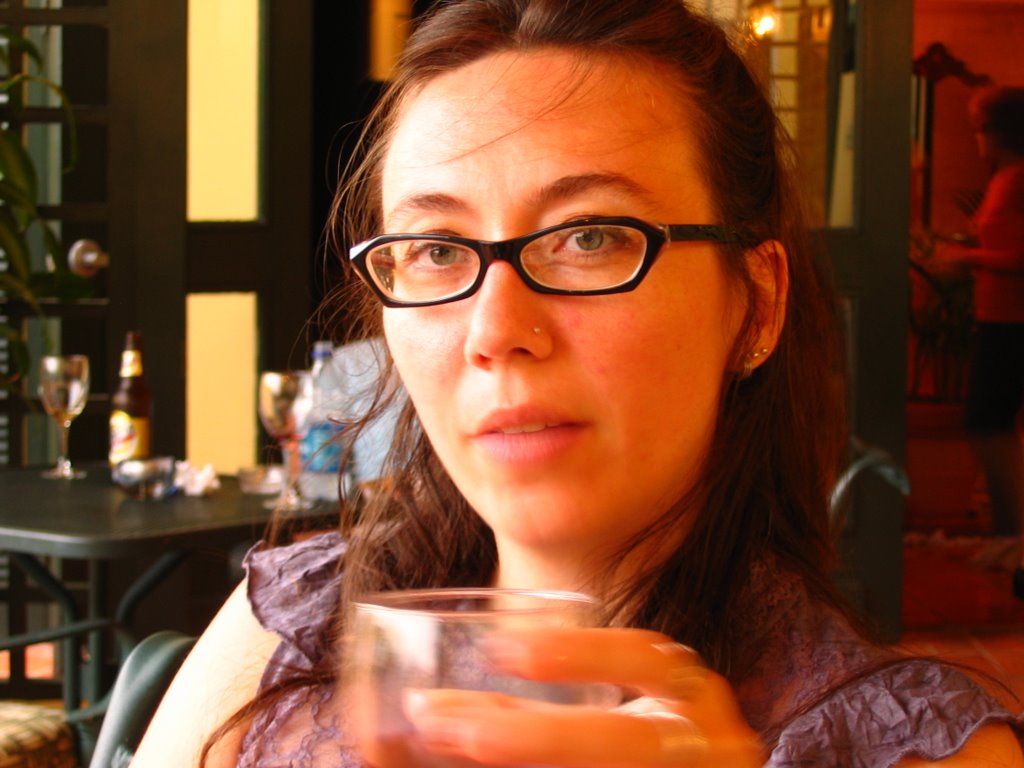
Below you will find a list of important films and the chapters they illustrate. We will view clips from many of these films in class, but just in case you want to view them again and/or use them as examples in future essays, you can find them here. Many of the early films can be watched as streaming video or downloaded. The
New York Public Library also has an awesome collection of films and dvd's, some of which can even be viewed online.
For a more complete list of important films, check out
Jen's Kick-Butt Movie Watching Contest at
Watch More Flickers.
PHOTOGRAPHYEarly Lumiere Bros.
Early Thomas Edison
Voyage to the Moon - Melies
The Great Train Robbery - Edwin Porter
Return to Reason - Man Ray
MISE EN SCENE .jpg)
Intolerance - DW Griffith
Nanook of the North - Robert Flaherty
Freaks - Tod Browning
Blade Runner - Ridley Scott
Eternal Sunshine of the Spotless Mind - M Gondry
Sin City - Rodriguez, Miller and Tarantino
MOVEMENTEdward Muybridge
Early Edison and Lumiere
At Land - Maya Daren
Meat Love - Jan Svankmeyer
Neighbors - Norman McLaren
The Cabinet of Dr. Caligari - R Wiene
The Conversation - Francis Ford Coppola
The Godfather - Francis Ford Coppola
Once Upon a Time in the West - Sergei Leone
EDITINGBattleship Potemkin - Sergei Eisenstein
Birth of a Nation - DW Griffith
Dr. Jeckyll and Mr. Hyde - R Mamoulian
Heart of the World - Guy Maddin
SOUND 
Metropolis - Fritz Lang
The Jazz Singer - Alan Crosland
The Secret Adventrues of Tom Thumb - D Borthwick
Dancer in the Dark - Lars von Trier
Dead Man - Jim Jarmusch
Apocalypse Now - Francis Ford Coppola
Eraserhead - David Lynch
ACTINGPublic Enemy - W Wellman
On the Waterfront - Elia Kazan
Psycho - Alfred Hitchcock
Repulsion - Roman Polanski
Raging Bull - Martin Scorcese
DRAMAStranger Than Paradise - Jim Jarmusch
The Cook, the Thief, His Wife and Her Lover - Peter Greenaway
The Saddest Music in the World - Guy Maddin
Heart of Glass - Werner Herzog
Blade Runner - Ridley Scott
STORY 
Mulholland Drive - David Lynch
Chinatown - Roman Polanski
Kasper Hauser - Werner Herzog
The Cabinet of Dr. Caligari - R Wiene
Night of the Living Dead - George Romero
Shaun of the Dead - Edgar Wright
28 Days Later - Danny Boyle
WRITING Rashomon - Akira Kurasawa
Being John Malkovich - Spike Jonze
The White Diamond - Werner Herzog
North by Northwest - Alfred Hitchcock
IDEOLOGY Intolerance - DW Griffith
Un Chien Andalou - Dali and Bunuel
Triumph of the Will - Leni Reifenstahl
The Great Dictator - Charlie Chaplin
CRITIQUE
Man with a Movie Camera - Dziga Vertov
Bonnie and Clyde - Arthur Penn
Sweet Sweetback's Badass Song - M van Peebles
The Atomic Cafe - J Loader and K Rafferty
Dogville - Lars von Trier
SYNTHESIS Citizen Kane - Orson Welles


.jpg)





